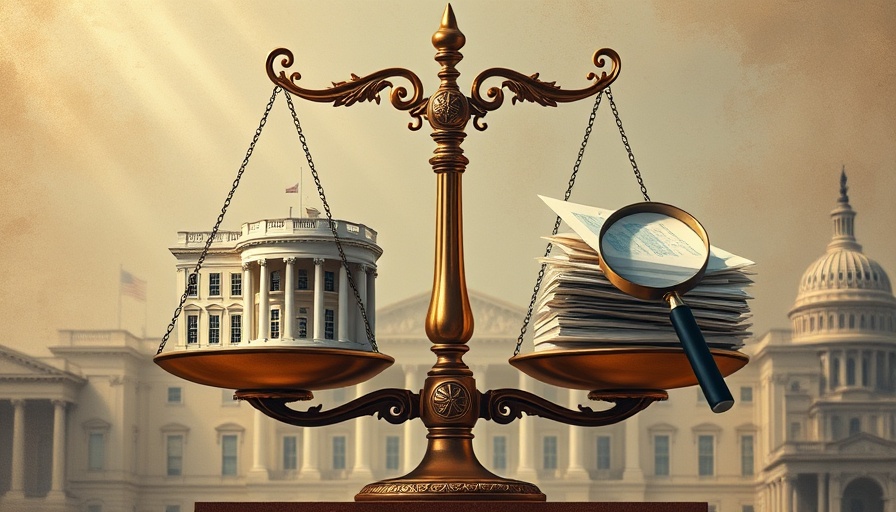
The GAO and Its Role in Federal Oversight
The Government Accountability Office (GAO) acts as a vital overseer of federal spending, conducting crucial audits and evaluations to ensure taxpayer dollars are well spent. Particularly in periods of political tension, such as the current investigation phase, the GAO's role becomes even more important. It ensures compliance with budget laws and assesses the effectiveness of various government programs. As local business owners, understanding GAO's function can provide insight into potential shifts in government spending that may affect your operations, especially in terms of public contracts and funding opportunities.
Current Landscape: A Tug-of-War Over Budget Authority
As the White House seeks greater control over federal budgets, the implications for congressional oversight are profound. This initiative could allow the executive branch to dictate agency priorities, influencing the flow of funds within various programs. For business owners, this means being aware of how these decisions might redirect federal funds that could benefit small business initiatives or community projects.
A Historical Perspective on Executive Control
The pursuit of expanded budget authority isn't a new phenomenon in American politics. Over the decades, presidents have often attempted to extend their reach through various methods, including impoundment. Such historical precedents are essential to consider as they shed light on the ongoing struggle for control in Washington. By understanding these past dynamics, local business owners can anticipate possible changes to federal funding that may impact their industries.
Potential Implications of the GAO Investigations
The GAO's current investigations could have substantial implications for federal operations and consequently for local businesses. As these investigations unfold, they may uncover inefficiencies or mismanagement in federal spending that could lead to reforms. Business owners should remain aware of how budget revisions might impact government contracts or subsidies that are available for local enterprises.
What Local Businesses Should Know
With these developments at play, it's crucial for business owners to understand how changes in budget authority could affect their operations. Enhanced executive control over spending might lead to more streamlined processes or shift funding priorities that could favor certain sectors over others. Staying informed about these changes can empower local business owners to adapt their strategies accordingly.
The Bigger Picture: Local Job Creation and Federal Spending
At the heart of this discussion is the potential impact on local economies. Increased federal oversight and targeted spending can lead to job creation in communities if allocated wisely. Business owners should advocate for transparency in these processes, ensuring that local needs are met in government funding allocations.
Engaging with Local Leaders
In light of these governmental shifts, it's important for local business owners to engage with local leaders and representatives. Advocating for balanced fiscal policies that benefit the community can ensure that local businesses have access to necessary resources. Participating in community discussions or local business forums can amplify voices and contribute to a more equitable distribution of federal funds.
Conclusion: A Call for Vigilance and Engagement
As the dynamic between the GAO investigations and the White House’s budget authority push unfolds, local business owners must remain vigilant and engaged. Understanding these changes and their implications can position business leaders to better navigate the complexities of federal funding and advocate for resources that will benefit their operations directly. Now is the time to stay informed and participate in community discussions about these pivotal issues.
 Add Row
Add Row  Add Element
Add Element 




 Add Row
Add Row 
Write A Comment